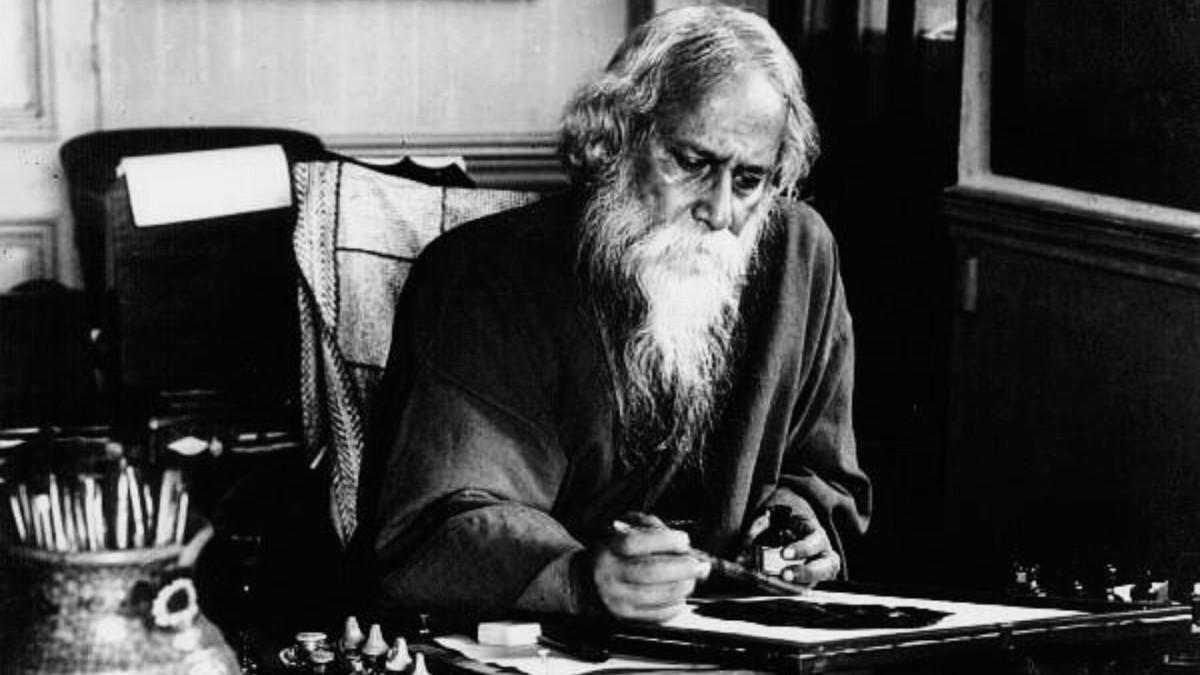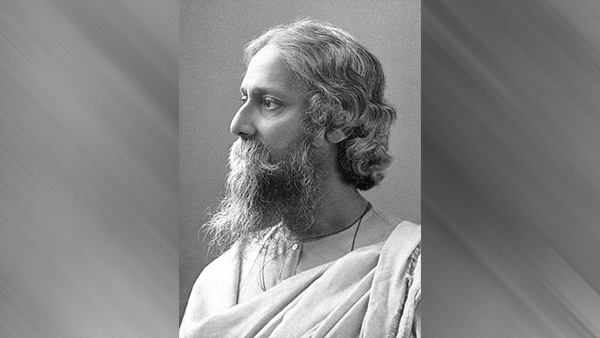Just In
- 30 min ago

- 17 hrs ago

- 18 hrs ago

- 21 hrs ago

Don't Miss
- Finance
 Stock Market Live Updates: Market Likely To Open Flat; Nifty To Hold 22,350; Earnings In Focus
Stock Market Live Updates: Market Likely To Open Flat; Nifty To Hold 22,350; Earnings In Focus - Education
 Cochin Shipyard, IIM Kozhikode Invites Applications For USHUS Program To Support Maritime Startups
Cochin Shipyard, IIM Kozhikode Invites Applications For USHUS Program To Support Maritime Startups - Movies
 Pavi Caretaker Box Office Collection Day 1 Prediction: Dileep's Movie Expected To Open Strongly
Pavi Caretaker Box Office Collection Day 1 Prediction: Dileep's Movie Expected To Open Strongly - Sports
 Who Won Yesterday's IPL Match 41? SRH vs RCB, IPL 2024 on April 25: Royal Challengers Bangalore End Losing Streak
Who Won Yesterday's IPL Match 41? SRH vs RCB, IPL 2024 on April 25: Royal Challengers Bangalore End Losing Streak - News
 MEA Dismisses US Human Rights Report On Manipur As 'Biased And Misinformed'
MEA Dismisses US Human Rights Report On Manipur As 'Biased And Misinformed' - Automobiles
 Royal Enfield Unveils Revolutionary Rentals & Tours Service: Check Out All Details Here
Royal Enfield Unveils Revolutionary Rentals & Tours Service: Check Out All Details Here - Technology
 Elon Musk’s X Is Launching a TV App Similar to YouTube for Watching Videos
Elon Musk’s X Is Launching a TV App Similar to YouTube for Watching Videos - Travel
 Escape to Kalimpong, Gangtok, and Darjeeling with IRCTC's Tour Package; Check Itinerary
Escape to Kalimpong, Gangtok, and Darjeeling with IRCTC's Tour Package; Check Itinerary
Rabindranath Tagore Jayanti 2023: Timeless Poems By Rabindranath Tagore, Bard Of Bengal
Popularly known as Word Poet and Bard of Bengal, Rabindranath Tagore bags the credit for being the first non-European to have received the Nobel Prize for literature in 1913, for the translated version of Gitanjali in English. It was Tagore's effort that brought out the original flavour of the poems, in the way he meant them to be.
The second edition of Geetanjali carries an introduction penned by none other than WB Yeats. These poems are chiefly driven by an earnestness to connect with his inner child, through the medium of spirituality. Gitanjali means offering poems to the supreme, with a sense of final surrender.

Most of his poems are about inner conversations between him and the supreme. Renaissance literature reflected the spirit of Tagore's times. Many poems depict his conversations with other human beings around him in a narrative form.
He expressed himself beyond compare in the genres of nature, devotion, death, meek acceptance of situations, gratitude, peace, happiness, melancholy, and different shades of emotions through which he ably responded to life. The poems have a picturesque feel with an imagery that is clear and vivid. They feel so real, the chirping of birds, the glowing kerosene lamp, the flying of birds and so much more.
Tagore's English poems are lyrical, with a smooth and elegant flow. He packs in his poems, the vast range of his emotions and the unfailing imagery to the brim.
His thoughts, emotions, and concepts never repeat themselves unnecessarily. His expressions were different every time, in every poem. His personality shone through his entire volume of work of all genres. It is he, who has set natural precedence for writers and showed to what extent a single writer can stretch his imagination.
Gitanjali in Bengali touched the pinnacle of fame by reaching far and wide across the entire globe, but his expression in an English translation of Gitanjali in a language that was not genetically his own was very scholarly and erudite. His fluent expressions touched the hearts of his occidental readers as they effectively transmitted the messages he wanted to convey.
The British government honoured him by offering him a knighthood which he returned later citing the Jallianwala Bagh massacre as a trigger that sparked this decision. Tagore also comes across as a song lyricist in the manner of Yeats of England. His voluminous and prodigious work simply proves that he did not experience the usual and common writer's block.
Who
sits
in
the
reeds
by
the
river
in
pure
green
garments,
green
garments?
Her
water
pot
drifts
from
the
bank
As
she
scans
the
horizon,
Longing,
distractedly
chewing
fresh
jasmine,
O
who
is
it
Sitting
in
the
reeds
by
the
river
in
pure
green
garments?
This is a stanza from the poem "New Rain" which is notable for its rhyme-rich language. The national anthem "Jana Gana Mana," is one of those few anthems that start with three consecutive rhymes, that were penned by the poet. But he not only entered the free verse arena as early as the 1770s, but he also wrote poems based on the Ghazals of Hafiz. There was not one genre on which he had not laid his hands. His poem "In the Eyes of a Peacock" is about his granddaughter.
In the below section, you can catch a glimpse of three of his poems and get an idea about the first, third, and the 32nd poem in the Gitanjali.

Thou hast made me endless (The First Poem In Gitanjali)
"Thou hast made me endless, such is thy pleasure. This frail vessel thou emptiest again and again, and fillest it ever with fresh life. This little flute of a reed thou hast carried over hills and dales, and hast breathed through it melodies eternally new."
The very first poem from Gitanjali is about a conversation he carries on with Lord Krishna, who holds a flute in his hands. He explains how his fragile human form gets filled with a fresh new breath of life, no matter how many times it empties itself. This certainly means that we as humans have multiple lives, through which we come alive, and that our mortal coil greets the soul that connects with it in every lifetime. It may get emptied in due course of time, but the process is continuous and never-ending. Despite all this, the soul continues to remain pure and blissful and blessed by the beneficence of Krishna.
'I know not how thou singest, My Master' (The Third Poem In Gitanjali)
"The life breath of thy music runs from sky to sky. The holy stream of thy music breaks through all stony obstacles and rushes on. My heart longs to join in thy song, but vainly struggles for a voice. I would speak, but speech breaks not into song, and I cry out baffled."
The third poem depicts the way the divinity bursts forth from the music of the Lord's flute. No amount of human endeavor can match the true excellence of the Lord's music. He is infinite and his music is universal. the poet explains how this music has mesmerized his senses.
'By all means they try' (The 32nd Poem In Gitanjali)
"By all means they try to hold me secure who love me in this world. But it is otherwise with thy love which is greater than theirs, and thou keepest me free. Lest I forget them they never venture to leave me alone. But day passes by after day and thou art not seen; If I call not thee in my prayers, if I keep not thee in my heart, thy love for me still waits for my love."
Poem 32 of Gitanjali explains the nature of emotional bonding that occurs soon after the relationship with a human being deepens. This is again a bond and a shackle that ties the human being to a particular post and never sets him free. God is the only entity that has set his spirits free without expecting or demanding anything from him. Obviously, the poet is disgusted with a load of expectations from others, that he has carried on his shoulders his entire life. There are no strings attached to his relationship with God. The memory of God is fleeting and momentary even in the poet's mind but he surely senses how much God loves him without expecting the poet to love him back.
Rabindra Nath Tagore's poetry is an endless journey of reflections in verse form. It never fails to allure those discerning readers amongst us although it remains as mystic poetry for those uninitiated to his poetry.
Disclaimer: The information is based on assumptions and information available on the internet and the accuracy or reliability is not guaranteed. Boldsky doesn't confirm any inputs or information related to the article and our only purpose is to deliver information. Kindly consult the concerned expert before practicing or implementing any information and assumption.


 Click it and Unblock the Notifications
Click it and Unblock the Notifications



